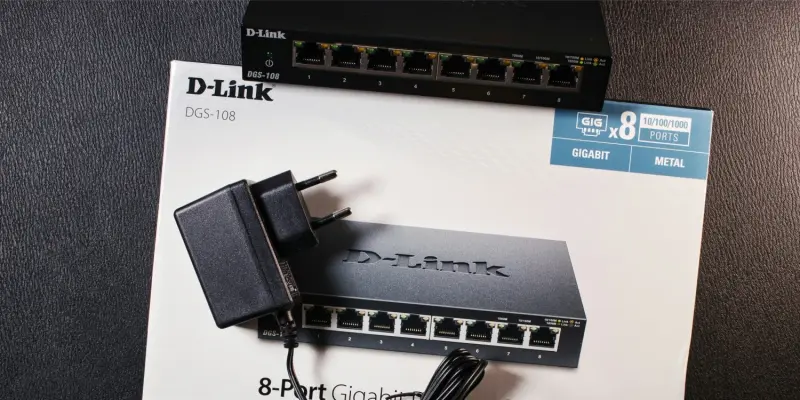In recent years, the intersection of technology and national security has gained increasing attention, particularly regarding foreign companies operating within the American market. One company at the heart of this debate is TP-Link, a Chinese networking equipment provider accused of threatening U.S. national security. These concerns culminated in a high-profile call for action led by Senator Tom Cotton, urging Secretary of Commerce Howard Lutnick to address the perceived risks associated with TP-Link’s activities. This discussion involves a complex web of cybersecurity anxieties, economic rivalry, and U.S.-China geopolitical tensions, underscoring the significance of technology in today’s global landscape.
Controversies Surrounding TP-Link’s Presence in the U.S.
National Security Risks
The primary concern surrounding TP-Link involves its alleged connections to the Chinese government and the potential misuse of its networking products for espionage purposes. Critics argue that TP-Link’s small office/home office (SOHO) products—such as Wi-Fi routers and mobile hotspots—lack the robust security features present in enterprise-level systems, thereby rendering them vulnerable to cyber intrusions. Lawmakers fear that these vulnerabilities can be exploited by Chinese state actors to orchestrate cyber-attacks against American infrastructure and citizens. This notion is supported by allegations that TP-Link operates as a state-sponsored entity closely linked to the Chinese Communist Party (CCP), ostensibly serving as a conduit for intelligence gathering.
This paranoia over foreign intelligence operations stems from broader concerns about China’s expansion of its cyber capabilities worldwide. As TP-Link continues to capture significant market share in the U.S., there is anxiety over the prospect of increased dependency on Chinese-manufactured technology. Lawmakers argue that the extensive adoption of TP-Link products in American homes and businesses might inadvertently establish channels for Chinese interference, thus posing a “clear and present danger” to U.S. national security. This fear is further compounded by the apparent lack of stringent regulatory measures governing the market presence of foreign technology firms.
Economic Concerns and Predatory Pricing
Beyond cybersecurity, TP-Link is also facing scrutiny over its business practices, particularly its alleged engagement in predatory pricing strategies. By offering products at prices significantly lower than those of American competitors, TP-Link has been accused of undermining the principles of fair competition. This approach has resulted in the company attaining a market share as high as 60% in the U.S. retail router and Wi-Fi system market. Critics contend that these tactics not only stifle competition but ultimately compel American consumers and businesses to rely on foreign-produced equipment, deepening economic dependencies. In response to such accusations, a Department of Justice criminal antitrust investigation has been launched to assess the legitimacy of TP-Link’s market strategies. This inquiry is positioned within a broader narrative of legislative efforts to safeguard the American market from unfair trade practices. Lawmakers supporting the move against TP-Link emphasize the importance of protecting domestic industries and maintaining a competitive playing field for American tech companies. By advocating for stringent action against TP-Link, they aim to bolster economic resilience and mitigate the potential risks posed by foreign technology entities.
Legislative Call for Action and Broader Implications
Unified Legislative Front
The coalition advocating for a ban on TP-Link reflects a broad spectrum of legislative support, including several Senators and Congressmen. These lawmakers have united in urging the Department of Commerce to take swift action to eliminate TP-Link’s SOHO products from the U.S. market, highlighting an urgent need to safeguard national interests. Their argument centers around the premise that unchecked access to sensitive American networks by foreign entities poses a categorical threat warranting immediate intervention. The communication emphasizes that inaction would invariably favor the CCP, placing American security and economic stability at a disadvantage.
This legislative endeavor highlights an overarching trend of heightened scrutiny towards Chinese technology firms operating within the U.S. Over recent years, tensions between the U.S. and China have escalated, prompting a reevaluation of foreign investments and influence over American infrastructure. The ongoing discourse resonates with the intentions behind President Trump’s Executive Order 13873, which aimed to empower the U.S. government to restrict transactions threatening national security. The letter to Secretary Lutnick underscores the importance of continuing such initiatives to maintain vigilance and secure American market interests.
Protecting the U.S. Technology Ecosystem
The conversation surrounding TP-Link is emblematic of larger strategic efforts to insulate the U.S. information and communications technology landscape from potential foreign encroachments. By urging regulatory reforms and strategic measures, lawmakers aim to fortify American critical infrastructure against risks of foreign exploitation. These efforts align with broader legislative campaigns aimed at preserving technological sovereignty and safeguarding economic competitiveness.
Further, the situation underscores the need for balanced policy frameworks that can facilitate innovation and collaboration while managing security risks associated with foreign technologies. As lawmakers and industry stakeholders deliberate on appropriate responses, fostering an ecosystem that prioritizes national security without stifling technological progress becomes paramount. Such measures would ideally encompass transparent governance mechanisms, enhanced cooperation with allied nations, and support for homegrown technological advancement, ensuring that the U.S. remains a leader in global technology.
Navigating the Future of Technology and National Security
In recent years, the convergence of technology and national security has increasingly turned heads, particularly when discussing foreign firms operating in the U.S. market. At the forefront of this discourse is TP-Link, a Chinese networking equipment provider accused of posing a threat to American national security. These apprehensions have reached a crescendo with a prominent call to action spearheaded by Senator Tom Cotton, who has been urging Secretary of Commerce Howard Lutnick to consider tackling the potential risks tied to TP-Link’s operations. This broader conversation navigates a tangled web of cybersecurity anxieties, economic competition, and heightened U.S.-China geopolitical frictions, spotlighting the critical role technology plays in shaping today’s global environment. It illustrates how technological advancements can both unite and sow discord among nations, highlighting the ever-growing importance of addressing security concerns in the rapidly evolving digital age.

